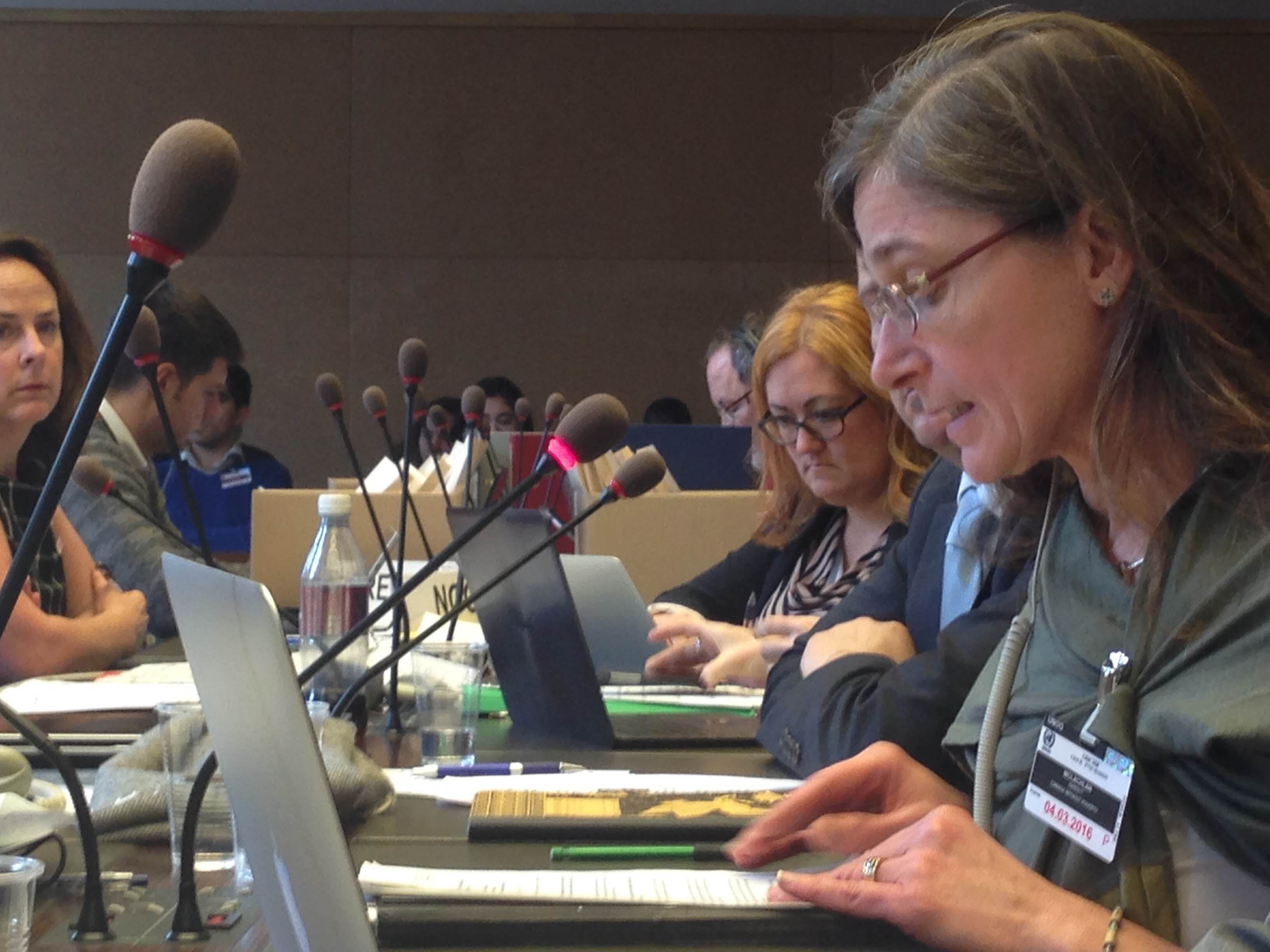Like this article? rabble is reader-supported journalism. Chip in to keep stories like these coming.
Editor’s note: This is a speech given at the 57th Session of the Committee on Economic, Social and Cultural Rights (22 Feb 2016 – 04 Mar 2016), Formal NGO Briefing, 22 February 2016. Speaking Notes presented by Harriett McLachlan, President of the Board of Directors.
Thank you Mr. Chairman,
Canada Without Poverty was the first NGO ever to appear before this Committee, back in 1993, and it is great honour to return.
In Canada, each year more than 235,000 people are homeless, 3.4 million are food insecure, 850,000 use food banks each month and almost five million people live below any acceptable measure of poverty.
Despite this, Canada’s social spending has declined. Federal government spending, as a share of GDP, is at its lowest level since 1949. Meanwhile, the World Bank recently ranked Canada as having the 11th highest GDP (Gross Domestic Product) in the world.
This begs the question: Is Canada spending a maximum of its available resources to advance socio-economic rights, as its obliged to do?
If Canada were to increase spending as a share of GDP by just 1% to 14.3%, Canada would have an extra $19 billion to invest in Canada’s international socio-economic human rights commitments.
The persistence of poverty in Canada is not just about the lack of expenditure, it’s a deeper, paradigmatic problem. Canada has completely divorced its social programs and policies from its human rights obligations. Governments in Canada do not understand that human rights violations require human rights responses.
For example, the Government announced it intends to adopt a federal poverty reduction strategy, and as of yet there are no references to international law. Social assistance rates across the country have absolutely no relationship to an adequate standard of living, reaching only 50% of the poverty line in some cases.
Although I’m an educated professional, I lived most of my life in poverty. It is clear to me that Canada does not connect poverty, homelessness or food insecurity with human rights. Paragraph 3 in Canada’s response to the list of issues is clear, in the Government’s opinion, my right to an adequate standard of living, to adequate housing and food, is not protected by the Charter of Rights and Freedoms. They have closed the door on people living in poverty, denying us access to justice.
While the world is watching during this critical review, we ask the Committee to consider our recommendations:
Canada must promote interpretations of the Charter that protect Covenant rights, and must not deny people living in poverty remedies to violations of economic and social rights. Canada must also recognize poverty as a prohibitive ground of discrimination.
Canada must link all socio-economic policies and programs with their human rights obligations. In this regard, and in keeping with the Committee’s 1998 and 2006 recommendations, Canada must develop a human rights based national poverty elimination strategy, with measureable goals and timelines and monitoring, review and claiming mechanisms.
Thank you.



